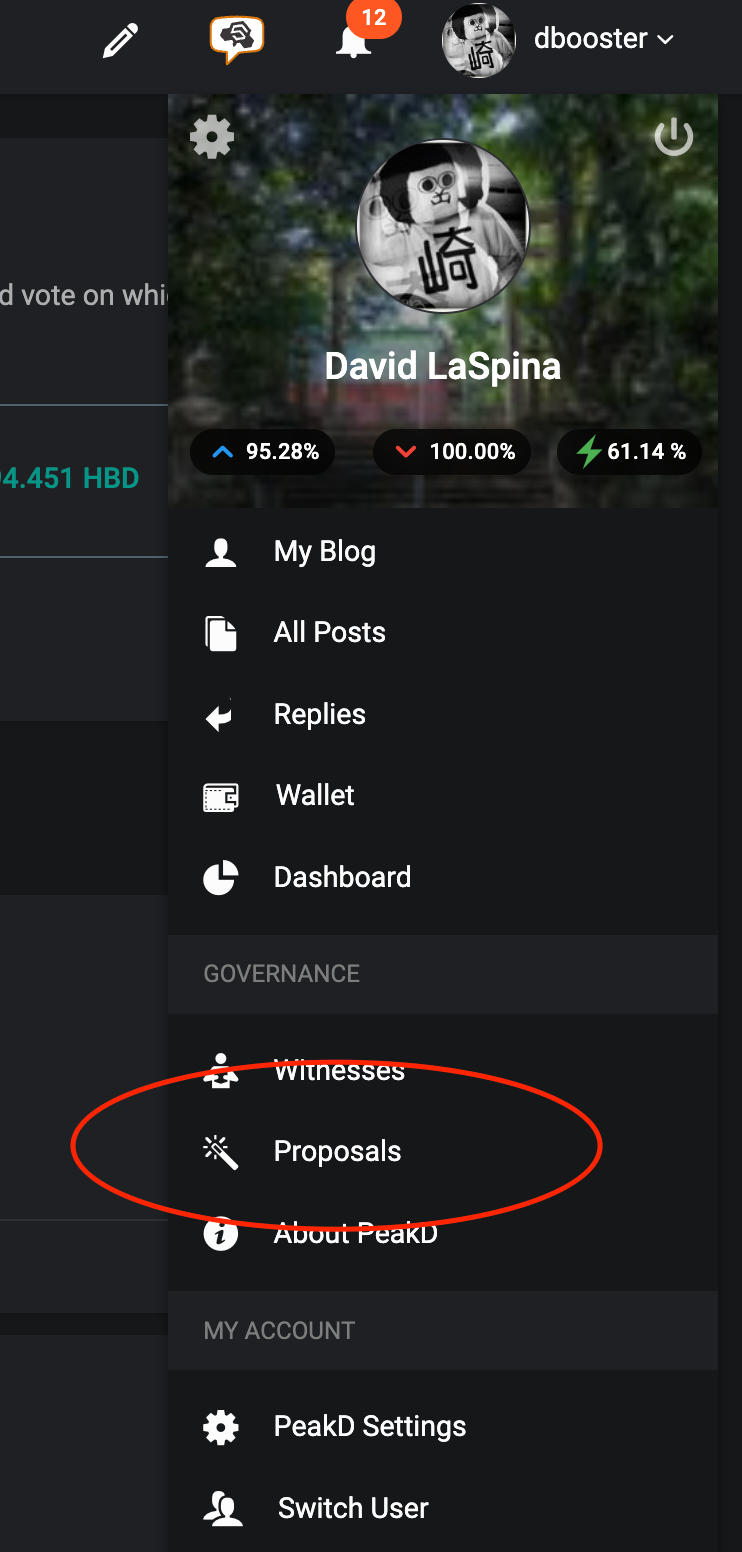A few months ago, I wrote about the return proposal. Today I want to bring it up again, because I think it is important. Let's see if I can put things a little differently than I did in that post.
The DHF
Many of you are well aware of what this is, but I am always amazed by the number of people who don't know. The DHF (Development Hive Fund) is a store of money on Hive that is used (or suppose to be used) as the name implies, to fund development of Hive or of things that will be of benefit to Hive.
How it works is that people will write a proposal for funds, then this proposal will be placed for a vote. If it gets enough votes, it passes, and the requested funds are handed over.
There are numerous problems with this, but we'll get to those. First off, if you've never explored this before, let's go to the Proposals page. On Peakd you can get there by pulling up the menu from the upper right corner of your screen, then clicking on "Proposals".

Or click here (and bookmark it).
On Ecency you can reach this place by pulling up the menu from the upper left corner of the screen (clicking on the 3 lines), then clicking on "Proposals".

Or click here (and bookmark it)
This proposal screen is divided into 3 parts.
- The funded proposals—these are the proposals that have gotten enough votes to secure funding.
- The unfunded proposals—these are the proposals that haven't yet gotten enough votes to secure funding.
- The upcoming proposals—these are the proposals that are available to be seen, but haven't been voted on yet.
I encourage you to look through the list and vote on any that you think sound good. Votes are base on stake, so if you have a lot of Hive Power, your vote will carry more weight than someone with very little Hive Power. Don't let concerns of a low HP prevent you from voting; as we say in the real world, every vote counts, and that goes for Hive as well.
The Return Proposal
Now, look at the very end of the funded proposal list. The last one there is the return proposal

This is the baseline. Anything that receives more support than this will be funded, and anything that receives less support will not be funded. The unique feature about the return proposal is that it is a moving target. We can vote on the return proposal and our votes determine where it falls. To put it another way: our votes determine the level of support needed for a proposal to pass or fail.
Looking at the photo above, you can see that as of this post the return proposal sits at 34,598,962.063 HP. If you go to the actual page (again, here for peakd's version, or here for ecency's version) you can click on any proposal to see who is voting for it and what their vote is worth. Here is the list for the return proposal:

Now you may think 34.5 million is a lot, but I'd say it is very very little compared to all of Hive. In my opinion, this places the barrier of entry far too low.
Opinions vary about the DHF funds. Some, like @blocktrades, think spending the DHF money is not a bad thing. Many others, like @themarkymark, feel the reverse, that it should be as hard as possible to spend this money. Regardless of how you feel, I think there is one big point that we might all agree on: There is almost no accountability to this system.
That is to say, there is no requirement of proving that the funds are being used as intended for passed proposals. Now in theory if someone were to abuse the funds or just not report on how they are being used, their proposal could just be unvoted. While true, this ignores the bullying and collusion that takes place behind the scenes. For example, every time the return proposal gets high enough to unfund certain proposals, the pressure starts being applied to anyone with a substantial vote to unsupport the return proposal. Unfortunately, where money is involved, corruption appears, after all. Despite the high-minded rhetoric of the blockchain, we have seen that it is no different from the real world. Money = corruption, online and off—and on Hive too.

There should be a requirement of at least weekly expense reporting, the lack of which would mean that the proposal would be instantly unfunded. There should be random audits, the failure of which means the proposal is instantly unfunded. We should require proof that the funds are being used as promised. The absence of this proof should mean instant unfunding.
We have none of these things (yet), meaning the return proposal is our only defense against abuse. That in mind, I think it behooves us all to vote up the return proposal and make the barrier to entry as high as possible. This, of course, won't stop abuse. Not even the failsafes I list in the paragraph above would stop it, though they may temper it. But a high return proposal will at least ensure a wide initial support, which is something we don't have now, where just a few people with a high stake can pass almost anything they want.
All that in mind, I strongly suggest all of you upvote the return proposal and don't unvote it when proposal authors send you a DM on discord begging you to do so so that their proposal can pass.
If you agree with me, don't wait another moment: go upvote it now.
(Your turn @silverstackeruk)
❦
 |
David LaSpina is an American photographer and translator lost in Japan, trying to capture the beauty of this country one photo at a time and searching for the perfect haiku. He blogs here and at laspina.org. Write him on Twitter or Mastodon. |
 )
)